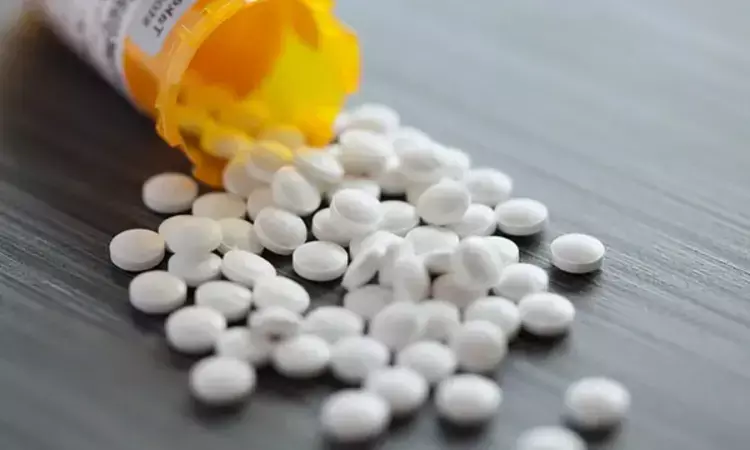- Home
- Medical news & Guidelines
- Anesthesiology
- Cardiology and CTVS
- Critical Care
- Dentistry
- Dermatology
- Diabetes and Endocrinology
- ENT
- Gastroenterology
- Medicine
- Nephrology
- Neurology
- Obstretics-Gynaecology
- Oncology
- Ophthalmology
- Orthopaedics
- Pediatrics-Neonatology
- Psychiatry
- Pulmonology
- Radiology
- Surgery
- Urology
- Laboratory Medicine
- Diet
- Nursing
- Paramedical
- Physiotherapy
- Health news
- Fact Check
- Bone Health Fact Check
- Brain Health Fact Check
- Cancer Related Fact Check
- Child Care Fact Check
- Dental and oral health fact check
- Diabetes and metabolic health fact check
- Diet and Nutrition Fact Check
- Eye and ENT Care Fact Check
- Fitness fact check
- Gut health fact check
- Heart health fact check
- Kidney health fact check
- Medical education fact check
- Men's health fact check
- Respiratory fact check
- Skin and hair care fact check
- Vaccine and Immunization fact check
- Women's health fact check
- AYUSH
- State News
- Andaman and Nicobar Islands
- Andhra Pradesh
- Arunachal Pradesh
- Assam
- Bihar
- Chandigarh
- Chattisgarh
- Dadra and Nagar Haveli
- Daman and Diu
- Delhi
- Goa
- Gujarat
- Haryana
- Himachal Pradesh
- Jammu & Kashmir
- Jharkhand
- Karnataka
- Kerala
- Ladakh
- Lakshadweep
- Madhya Pradesh
- Maharashtra
- Manipur
- Meghalaya
- Mizoram
- Nagaland
- Odisha
- Puducherry
- Punjab
- Rajasthan
- Sikkim
- Tamil Nadu
- Telangana
- Tripura
- Uttar Pradesh
- Uttrakhand
- West Bengal
- Medical Education
- Industry
Can use of proton pump inhibitors lead to hypertension?

India: A recent study published in Pharmaceuticals has emphasized the significance of using proton pump inhibitors (PPIs) with caution and ongoing research to better understand the impact of these medications on cardiovascular health.
The discussion explains how long-term use of PPI can disrupt normal endothelial function, mineral balance, and vascular control, eventually leading to hypertension.
Balancing a medicine's therapeutic advantages with its possible risks and side effects is a critical part of drug regulation and medical practice. When a drug is designed for the treatment of a medical condition or a particular disease ends up causing additional risks or side effects that lead to the development of other serious problems, it can have detrimental consequences for patients.
PPIs are highly regarded for their effectiveness in addressing several issues related to stomach acid and hold a significant place in today’s medical landscape. PPIs are primarily prescribed by healthcare professionals, especially gastroenterologists or doctors who specialize in treating gastrointestinal conditions. These medical professionals are trained to diagnose and manage conditions including gastroesophageal reflux disease (GERD), peptic ulcers, H. pylori infection, and Zollinger-Ellison syndrome for which PPIs are commonly prescribed.
Rohit Tayal, Chitkara College of Pharmacy, Chitkara University, Rajpura, Punjab, India, and colleagues explored the correlation between persistent use of proton pump inhibitors and hypertension, a common cardiovascular ailment.
"While proton pump inhibitors are beneficial in treating several gastrointestinal problems, their availability without a prescription has led to self-medication and long-term use without medical monitoring," the researchers wrote.
Recent findings have shown a link between long-term PPI use and increased cardiovascular risks, particularly hypertension. In the study, the researchers investigated the intricate mechanisms underlying PPI’s effects, focusing on potential pathways that lead to hypertension, such as disruption of nitric oxide bioavailability, endothelial dysfunction, hypomagnesemia, hypocalcemia, and vitamin B deficiency.
"While the relationship between PPIs and hypertension needs further exploration, the evidence indicates the need for cautious prescribing and a balanced approach to PPI usage," the researchers wrote.
Understanding these pathways provides valuable insights into the complex interplay between PPIs and hypertension, enabling better patient management and developing strategies to mitigate this possible side effect. However, present clinical and preclinical evidence is not adequate to prove the exact relationship between chronic PPI use and hypertension.
The researchers suggest that a better understanding of the connection between PPIs and hypertension will emerge with progress in additional research. Therefore, they feel the need for further research to establish a definitive causal relationship and develop guidelines for healthcare providers.
"Awareness among clinicians and regular blood pressure monitoring in patients on long-term PPI therapy is important to ensure optimal management of their overall health," they concluded.
Reference:
Tayal, R., Yasmin, S., Chauhan, S., Singh, T. G., Saini, M., Shorog, E., Althubyani, M. M., Alsaadi, B. H., Aljohani, F., Alenazi, M. A., Abutaily, S. A., & Ansari, M. Y. (2023). Are Proton Pump Inhibitors Contributing in Emerging New Hypertensive Population? Pharmaceuticals, 16(10), 1387. https://doi.org/10.3390/ph16101387
Dr Kamal Kant Kohli-MBBS, DTCD- a chest specialist with more than 30 years of practice and a flair for writing clinical articles, Dr Kamal Kant Kohli joined Medical Dialogues as a Chief Editor of Medical News. Besides writing articles, as an editor, he proofreads and verifies all the medical content published on Medical Dialogues including those coming from journals, studies,medical conferences,guidelines etc. Email: drkohli@medicaldialogues.in. Contact no. 011-43720751


